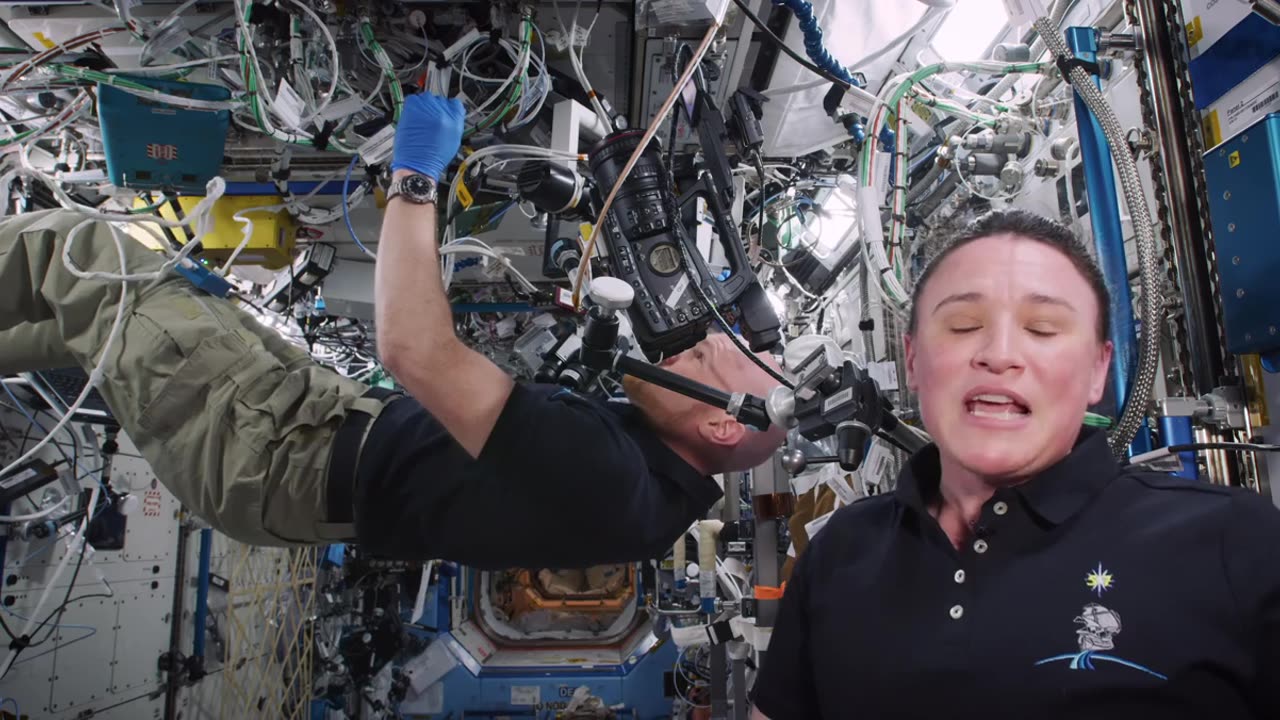Premium Only Content

Space-Grown Crystals Offer Clarity on Parkinson's Disease
Yes, that's right. Scientists have grown crystals of a protein involved in Parkinson's disease in space, and the crystals are helping them to better understand the protein's structure and function. This could lead to new treatments for the disease.
The protein is called alpha-synuclein, and it is thought to play a role in the formation of Lewy bodies, which are clumps of protein that damage nerve cells in the brain. The crystals grown in space are much larger and better-ordered than those grown on Earth, which allows scientists to study them in more detail.
The research was conducted by scientists at the University of California, San Francisco, and the California Institute of Technology. They grew the crystals on the International Space Station, where the microgravity environment helped to prevent them from crystallizing in an irregular way.
The scientists say that the space-grown crystals could help them to develop new drugs that target alpha-synuclein and prevent it from forming Lewy bodies. Parkinson's disease is a neurodegenerative disorder that affects movement. It is caused by the death of dopamine-producing neurons in the brain. Symptoms include tremors, rigidity, slowness of movement, and impaired balance and coordination. There is no cure for Parkinson's disease, but there are treatments that can help to manage the symptoms.
The research is still in its early stages, but it is a promising development in the search for new treatments for Parkinson's disease.
-
 1:14:07
1:14:07
Glenn Greenwald
6 hours agoGlenn Takes Your Questions: Billionaires, Bari Weiss and Journalism | SYSTEM UPDATE #509
45.9K9 -
 LIVE
LIVE
SpartakusLIVE
1 hour agoNEW Update - BROKEN Attachment || Viewers REJOICE at the long-awaited Return of Their KING
409 watching -
 19:51
19:51
Robbi On The Record
21 hours agoElectronic Tattoos Measuring Thoughts? From iPhone to iSkin
11.6K13 -
 LIVE
LIVE
The Mel K Show
3 hours agoMel K & George Papadopoulos | Deep State Targets Rising: The Geopolitical Reality of Spy Gate | 9-5-25
444 watching -
 LIVE
LIVE
SavageJayGatsby
21 hours agoLet's Play: Sea of Thieves | Friend Friday
34 watching -
 LIVE
LIVE
LFA TV
13 hours agoLFA TV ALL DAY STREAM - FRIDAY 9/5/25
733 watching -
 1:08:51
1:08:51
BonginoReport
9 hours agoMass Migration And The Erasure Of British Culture w/ Ian Haworth - Hayley Caronia (Ep.128)
88K30 -
 2:15:11
2:15:11
MattMorseTV
5 hours ago $12.71 earned🔴Trump's MASSIVE Oval Office ANNOUNCEMENT.🔴
36.8K47 -
 3:52:41
3:52:41
Nerdrotic
5 hours ago $8.90 earnedUK Has Fallen, Hollywood DOOM, DC Dysfunction | Friday Night Tights 370
72.3K9 -
 5:52:26
5:52:26
Dr Disrespect
9 hours ago🔴LIVE - DR DISRESPECT - CRONOS: The New Dawn - FIRST IMPRESSIONS
106K13